SUMMARY
This is AI generated summarization, which may have errors. For context, always refer to the full article.
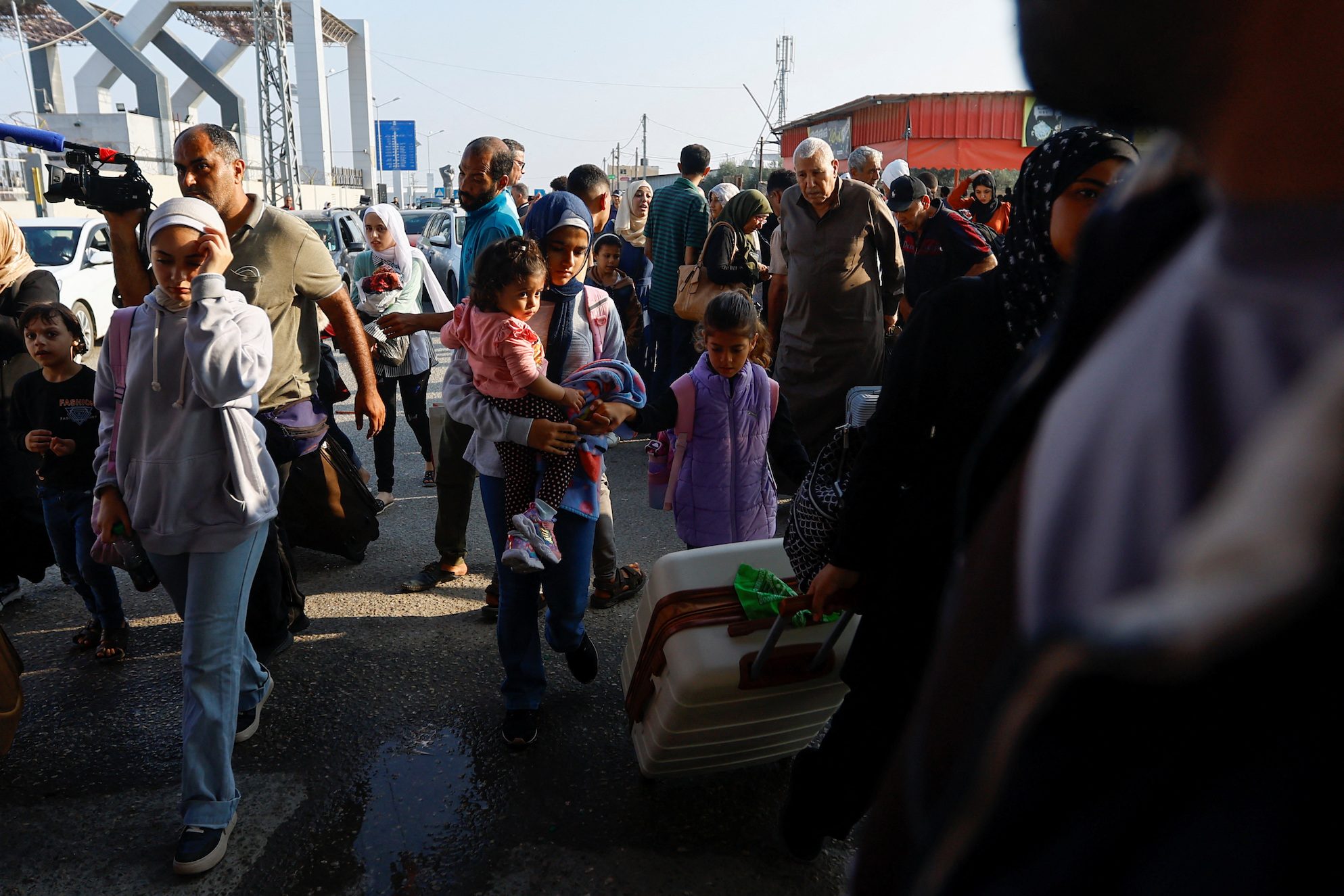
MANILA, Philippines – Even as the Philippines exhausts diplomatic efforts to bring home Filipino nationals trapped in Gaza Strip, officials here say they don’t expect them to stay for good.
After all, it is Gaza – and not the Philippines – that they call home.
“They are permanent residents of Gaza. We cannot stop them from going back to Gaza when the situation clears. Eventually, uuwi ‘yan sa (they will go back to) Gaza,” said Department of Foreign Affairs (DFA) Undersecretary Eduardo de Vega in a briefing with media on Thursday, November 2.
De Vega was asked if the Philippines has plans in place – aide packages or integration programs – once the 115 Filipino nationals in Gaza finally make their way here.
There are 136 Filipinos in the Palestinian territory. Most of them – around two-thirds, according to De Vega – are Palestinian-Filipinos who were born, or at least grew up, in Gaza. Most of them trace their heritage to Filipinas who married Palestinians and moved to Gaza.
All in all, there are 24 Filipino families in the besieged Palestinian territory who want to come to the Philippines.
Coming to Manila
De Vega said President Ferdinand Marcos Jr. has tasked several agencies – those concerned with migrant workers – to prepare for their arrival. Integration into the community is usually the task of the concerned local government unit.
De Vega noted that they will also be working with the National Commission on Muslim Filipinos to help address the needs of Filipinos fresh from Gaza.
Of the 134 Filipinos remaining in Gaza, 19 remain unsure about repatriation, including a Filipino nun from the Missionaries of Charity who has refused to flee Gaza City, despite warnings of the Israeli defense forces.
De Vega said around 500 people are allowed to leave Gaza, based on current arrangements made through a Qatar-led deal with Egypt, Israel, and Hamas. Egypt is preparing to evacuate over 7,000 people – foreigners and Palestinians with dual nationalities – out of Gaza.
The process is straight-forward yet complex: Israel comes up with a list of those approved to exit Gaza, they exit through Rafah crossing and head to the Egyptian border, where their entry into the country is then processed.
De Vega said the Philippine embassies concerned – in Jordan and Egypt, for the Filipinos in Gaza – have long submitted to Israeli and Egyptian authorities the names, profiles, and papers of the Filipino nationals.
The DFA official said he hopes Israel and Egypt would remember the “heroism” of the Filipino diaspora in their countries and prioritize the exit of Filipinos.
As of November 2, no other Filipino national aside from the two Médecins Sans Frontières doctors have been able to leave Gaza.
De Vega reckoned that one of the reasons for the delay in the processing of the 115 Filipino nationals’ exit from Gaza could be their names – most of them are Palestinian, and therefore have Arab names.
“That might explain it. Baka iniisip ng mga Israelis, pinapatagal pa ‘yung clearance out of suspicion. Of course they already say it: ayaw nila ng Hamas makalabas, ayaw naman ng Egypt makapasok. We guarantee them, mga citizens natin yan. They are law-abiding,” said De Vega.
(Maybe the Israelis are taking time to process their clearance out of suspicion. Of course, Israel has already said that they do not want Hamas to exit, and Egypt does not want them to enter.)
The Philippine embassy in Cairo is preparing to fly to the Philippines at least 150 individuals, just in case the Palestinian spouses of the Filipino nationals are allowed to leave Gaza, too.
When they finally come to Manila, De Vega said the Filipino nationals from Gaza will likely stay with their relatives here.
The right to return
The desire to return to Gaza – currently besieged by Israel and blockaded by the same country since 2007 – should not be surprising if one reads up on the decades-long struggle of Palestinians.
Palestinians carry with them the trauma of the Nakba (“catastrophe” in Arabic), or the “mass displacement and dispossession of Palestinians during the 1948 Arab-Israeli war,” according to the United Nations (UN).
The United Nations Office for Coordination of Humanitarian Affairs calls the Nakba “the event that shattered Palestinian lives and severed their ancestral connection to their land during the establishment of the State of Israel.”
Palestinians today are scattered across the world, particularly in neighboring Jordan, Lebanon, and Syria. The UN estimates that 40% of Palestinians “remain under occupation in the Gaza Strip and the West Bank, including East Jerusalem, since 1967.”
In a joint statement in June 2023 for World Refugee Day, several UN experts said: “Since 1948, both the General Assembly and the Security Council have consistently called upon Israel to facilitate the return of Palestinian refugees and provide reparations.”
“Despite these repeated appeals, Palestinian refugees have been systematically denied of their right to return and forced to live in exile under precarious and vulnerable conditions outside the borders of Palestine. The right of return constitutes a fundamental pillar of the Palestinian people’s right to self-determination.”
“The fragmentation of the Palestinian people, both geographically and politically, through administrative methods of control based on residency and race, tantamount to apartheid, has obstructed the realization of the right to return and self-determination. These practices serve the settler-colonial project pursued by Israel.”
Among those who signed the joint statement was Francesca Albanese, the UN’s Special Rapporteur on the situation of human rights in the Palestinian Territory occupied since 1967, and Paula Gaviria Betancur, Special Rapporteur on the human rights of internally displaced persons.
While it’s the October 7 Hamas attack on Israel that sparked the current conflict, Palestinians have long struggled in the conflict between Israel and Palestine.
Gaza, for instance, has been under land, sea, and air blockade by Israel since 2007, when Hamas took control of the territory.
Some 1,400 Israelis have been killed since Hamas’ October 7 surprise attack. The UN estimates that over 9,000 Palestinians have been killed in Israel’s bombardment and ground assault on Gaza. The Hamas-run Health Ministry estimates that more than 3,600 Palestinian children have been killed in three weeks of war. – Rappler.com
Add a comment
How does this make you feel?
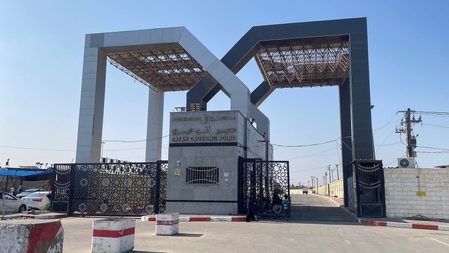
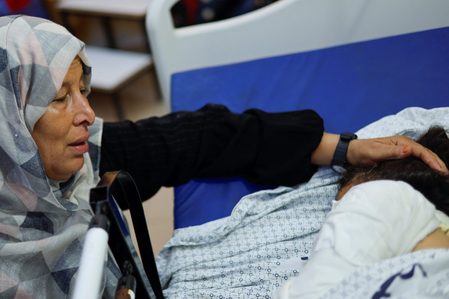
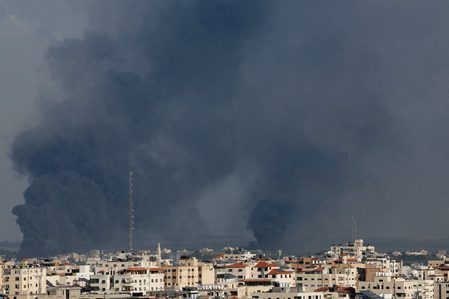








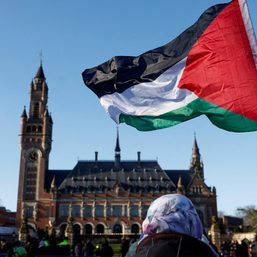

There are no comments yet. Add your comment to start the conversation.